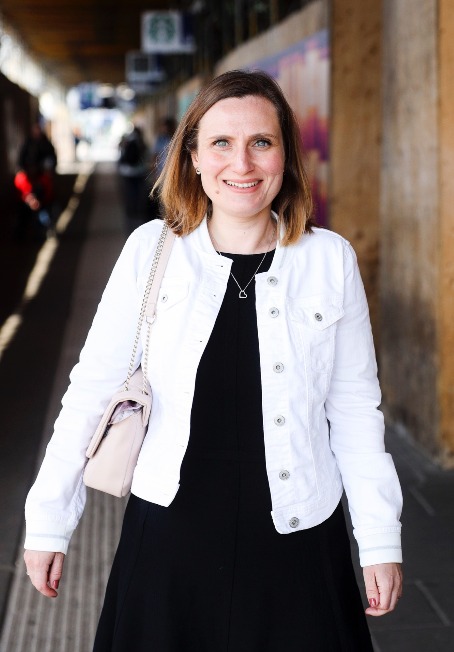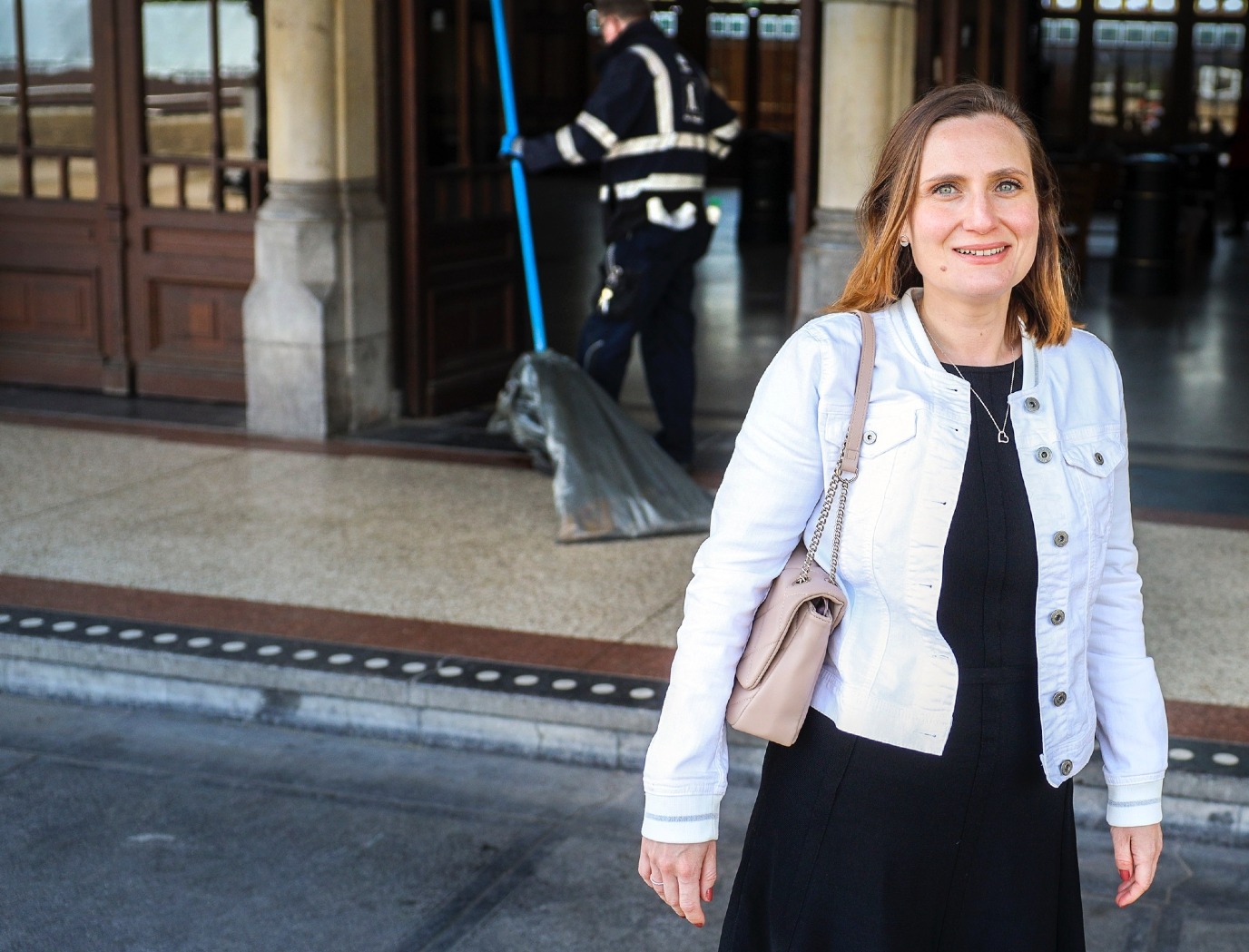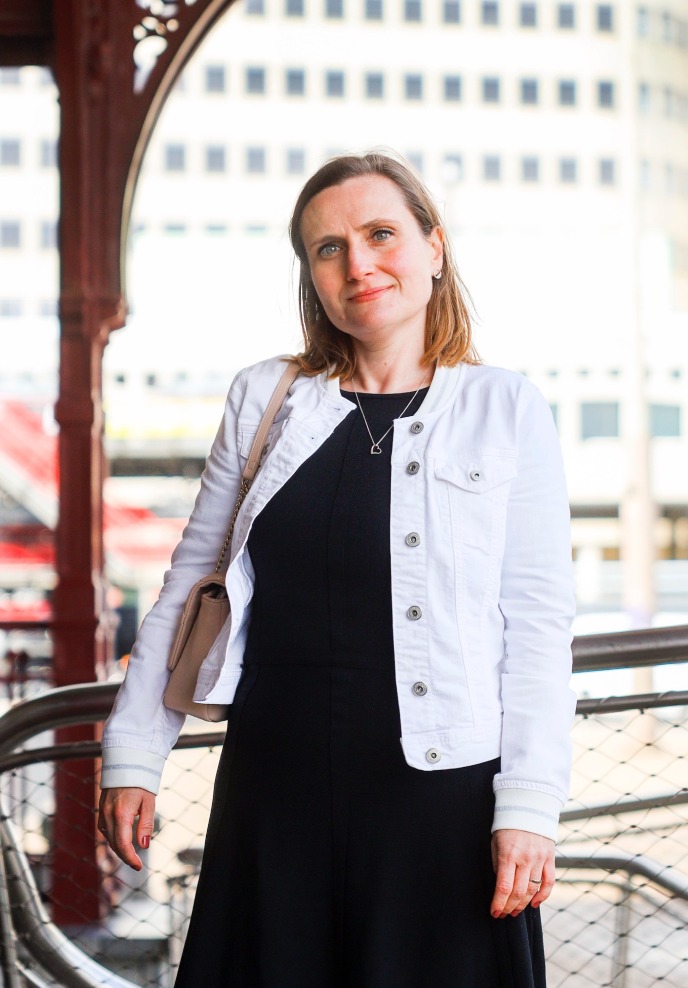Vocation or necessary evil?

It is important to know how employees perceive their jobs, as Milena Nikolova discovered. The Professor of Economics of Wellbeing distinguishes three different types of work motivations: as a tool to earn money, as a step in your career, or as something that provides a sense of purpose. This classification explains approximately 40% of the differences in the effort we put in the workplace, or in our search for a new job. ‘Recognizing different work motivations can help employees become aware of what makes them happy.’
By: Riepko Buikema, Corporate Communication Office / Photos: Henk Veenstra
The Bulgarian born Nikolova was only seven or eight years old when the seed for her academic career was planted. ‘My mother came back from a business trip to the US and said: “That is where you should go to study. I don’t yet know how, but we will manage it somehow.” Later on, my sister paved the way for me in America. It was great, and I am incredibly grateful for it.’
Turbulent times
So off she went, as an 18-year old, to Gettysburg, Pennsylvania. ‘I grew up in turbulent, unhappy times in Bulgaria, during the transition to democracy and the free market economy. My family was lucky, but many people had very little money. I remember seeing an old woman at the local supermarket, crying because she only had bread with oil to eat. It was terrible.’
Economics of happiness
On the other side of the Atlantic, Nikolova seized all the opportunities she got. She completed a PhD at the University of Maryland, College Park, where she met Professor Carol Graham, a pioneer in the field of the ‘economics of happiness’. ‘I immediately found her field incredibly appealing, because, unlike regular economics that revolves around the use of resources, production, and consumption, this field focuses on the wellbeing and life satisfaction of individuals. Plus, Carol was a role model for me. She taught me how to be a scholar, and even more importantly, a female scholar.’
Determined
These inspiring lessons lay the foundation for Nikolova’s recent, curiosity-driven research in Groningen into our work motivations, courtesy of a grant from the Dutch Research Council (NWO) Open Competition. ‘I have worked on this topic for so long, and I have tried to obtain a grant for it at least thirty times. Some things I don’t mind giving up — I also have bad ideas, you know — but not this. I really believe in it.’
Disastrous
Why this insistence on this particular topic? ‘I believed that as economists, we were overlooking something important. I feel that our motivations for working explain much of our work behaviour. For example, we know that losing a job is one of the unhappiest moments in a person’s life. It has a huge impact on our satisfaction. In addition to an income, work also gives us structure, social contacts, and a purpose. At the same time, not everyone who becomes unemployed finds a new job straight away. For many people, it takes quite some time; they don't simply grab the first thing that comes along. But why is that, if losing your job has such a negative impact on your happiness?’

Meaning
One obvious explanation, says Nikolova, is that for some people, work is undoubtedly simply work, nothing more than a tool for making money. ‘For other people, however, work is also a source of prestige, of social status; they see their work in the context of a career. And then there is a third group, the calling-oriented people, for whom work provides a sense of purpose. This group is not necessarily interested in a job with more status, money, or prestige. They may spend longer looking for a suitable workplace, a job which they feel contributes to society.’
Recognizing differences
This tripartite division matters, as Nikolova found out. ‘I was shocked to discover that the meaning we attribute to our work is the most important determining factor in how much effort we put into our work, or into looking for a new job. This is clearly not to say that I am advocating using employees’ work orientations profiles to exploit or manipulate them. Certainly not. But recognizing different work motivations can help employees become aware of what makes them happy. Someone who sees their job as a calling should be given the space to contribute to the organization, to improve things. With someone who is focused on career, you should talk openly about expectations and opportunities for promotion.’

Heart-warming
What about the interviewee herself? Which group does Professor Nikolova put herself in? We can guess the answer, especially after she shares with us ‘one of the best moments of her career’: She talks about the day an American highschool girl, with plans to study engineering, emailed Nikolova that her perspective on robotization and the future quality of jobs had been transformed thanks to a publication from the Aletta Jacobs Professor in Groningen. ‘It was so heart-warming! And yes, that is precisely the sense of purpose I seek. That’s what I work so incredibly hard for.’ I was always surprised to hear stories of colleagues who continued to work while nursing an infant, but then it happened to me too.’
Pass on values
‘As a mother, I now pay more attention to other things in life, or so I keep telling myself. At the same time, I find it important that my three-year-old daughter sees me prepare a lecture or presentation. I talk to her about my students, PhD students, and co-authors. I want to pass on my values to her. That is a struggle. I consider myself lucky that my husband recognizes this and supports me. But I have already told my daughter: “I don't care where you study later, but - as a visiting professor - I am going with you.”
More information
Nikolova will deliver her inaugural lecture on Friday 11 October.
| Last modified: | 26 June 2024 12.12 p.m. |
More news
-
10 December 2024
Research by Statistics Netherlands (CBS) and the University of Groningen finds possible circumvention of sanctions against Russia by small, young businesses
Dutch goods exports to Russia fell sharply after the European Union scaled up sanctions in 2022. At the same time, Dutch exports of sanctioned goods increased to seven countries with an increased risk of sanction circumvention. A striking number of...
-
26 November 2024
New Research Highlights Cost-Saving Benefits of Lifestyle Behavior Change App
A study conducted by researchers from the Faculty of Economics and Business (FEB) of the University of Groningen has found that the use of the SamenGezond app, offered by health insurance company Menzis, is associated with a notable reduction in...
-
20 November 2024
Gerard van den Berg appointed as member of the Academia Europaea
Professor Gerard van den Berg had been appointed as member of the Academia Europaea, the European Academy for Sciences, Humanities and Letters.
